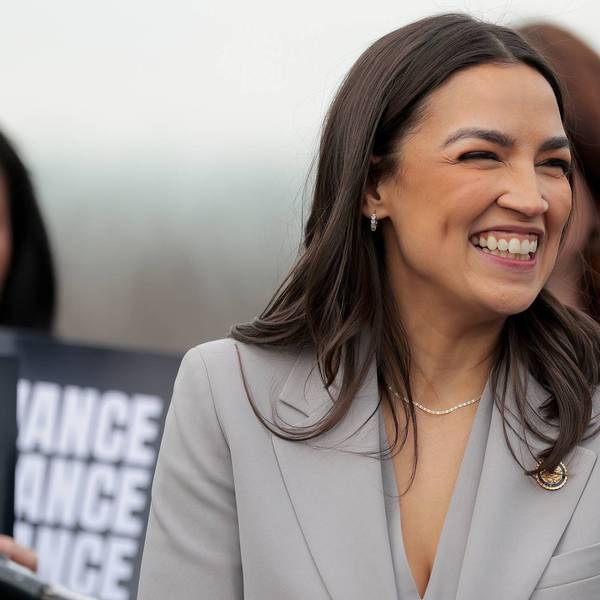Two weeks ago, Bernie Sanders's 2020 campaign looked seriously unwell -- and then, so did Bernie Sanders. As of October 1, the Vermont senator's support in national polls had been stagnating for months, while his standing in surveys of early states had been declining. For a newcomer to presidential politics, boasting a lock on third place four months before Iowa would be auspicious. But for a candidate who already enjoyed near 100 percent name recognition among the party faithful, it seemed the opposite; especially as Elizabeth Warren moved steadily further ahead of her fellow left-wing New Englander in the polls.
And then the 78-year-old socialist had a heart attack. And in one of his first interviews after the health scare, an understandably fatigued-looking Bernie suggested he would have to "change the nature of the campaign." A thousand obituaries for "the political revolution" were prewritten.
But Sanders's showing Tuesday night will keep them unpublished. At the Democratic debate in Westerville, Ohio -- his first major campaign event since taking ill -- Bernie wasn't just his old, bizarrely sharp and energetic-for-a-septuagenarian self. He was better, crisper, and funnier than before. The hoarse voice that plagued Sanders on the last episode of this (wretched) TV show was gone. A new perspective on the fragility of this life -- and the preciousness of every opportunity to mitigate the suffering of other human beings -- had, presumably, taken its place. Or maybe Bernie just got a good night's sleep Monday. Either way, he turned in his finest debate performance of the cycle thus far.
In the (apparently, legally mandatory) early back-and-forth on the horrors of replacing private-insurance premiums with payroll taxes, Sanders benefited from the greater clarity of his position relative to Warren's (he is comfortable copping to the necessity of tax hikes, she prefers to avoid the T-word), and his rivals' greater interest in damaging the race's new front-runner.
Later, he delivered a rousing defense of his desire to expropriate Tom Steyer's wealth; interrupted Joe Biden to crack a joke amusing enough to earn him an impromptu embrace from the former vice-president; and still managed to stick a shiv between Uncle Joe's ribs when the time was ripe:
Finally, Sanders closed out the night by demonstrating that he isn't actually incapable of indulging the press' bottomless appetite for pleasing pablum about bipartisan cooperation, and the evils of divisiveness. Asked to describe a friendship that transcended partisan lines, the senator reminded America of a fact some of his loudest online supporters often elide -- Bernie is capable of playing nice with Republican colleagues, and pursuing incremental progress over ideological purity, as he did when partnering with John McCain on reforms to veterans' health care.
Meanwhile, in the face of heavy incoming fire, Warren's answers often came off as less crisp and self-assured versions of Sanders's (which had not, in my infinitely objective view, been the case at previous debates). The Massachusetts senator put up a solid performance. But the combination of Sanders's vitality, and Warren's incessant obligation to play defense, made Bernie look like the more effective messenger for the party's left flank (at least, for this evening).
And then, minutes after the debate was done, the Sanders campaign won the endorsement of the most charismatic congresswoman in the United States: Alexandria Ocasio-Cortez revealed that she will be lending Bernie 2020 her considerable star power at a rally in Queens on Saturday. AOC's fellow "squad" members, Ilhan Omar and Rashida Tlaib, will also reportedly be joining the political revolution.
Whether any of this will actually matter is unknowable. There isn't much evidence that any of the previous Democratic debates made a durable impact on the polls. To the extent that Sanders needs to improve his standing with older voters, and Democrats who subscribe to conventional notions about "electability," AOC's rubber stamp isn't going to help. But the senator's mission Tuesday night was to keep the political obituarists at bay. There's no question he accomplished that much.




